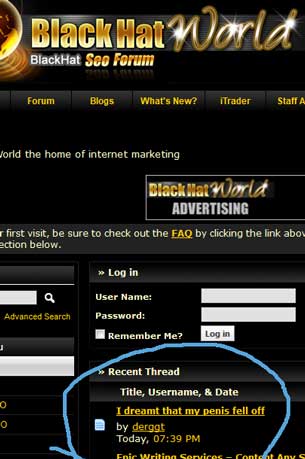Google recently announced the launch of an entirely new algorithm called Hummingbird.
Hummingbird isn't an update, like Panda and Penguin, but a whole search new tech, focused on "semantic search". It's mobile-first, conversational, and fast, and it seems to be working remarkably well. How can we tell it's performing well? Because the internet isn't on fire. When Google search changes hurt SEO ranking for businesses or upset existing SEO strategies, it's all over the tech media. Search Engine Land has a nice easy-to-read FAQ about Hummingbird. You can also learn a lot about what Hummingbird is doing by examining your own experience.
Have you recently been surprised by Google search results - did the answer you got seem almost telepathic, like Google knew what you wanted before you even typed it?
If you haven't, you will. It will seem spooky for a second, then so useful you'll forget you were ever spooked by it.
If you have a business site, your concern isn't how Google Hummingbird works for your personal use- it's how to keep your site ranking as high as possible.
The changes in Hummingbird haven't affected many SEO agencies because they're already doing the "best practices" of the last year or two for their clients.
If you're already running an SEO strategy based on creating meaningful, valuable content nodes that influencers will share, your site should be fine. Because Hummingbird further actualizes Google's philosophy about rewarding sites that provide a "positive user experience" of "socially validated content".
But that sucks, because I want my site to sell widgets- I don't want to be a widget content publisher.
I know. It's kind of weird. It's a particular definition of "positive user experience" that isn't actually universally user-serving. It's a definition of "positive user experience" devised to make it hard to game the Google system, actually. What a surprise- Google defines being highly rankable as creating great content (i.e. NOT spammy pages keyword-bait pages) and buying Google adwords. An interesting fact within this context: millions of people buy products on eBay every day. Yet eBay doesn't publish one molecule of "valuable content" about any particular product on its site. If people want to know about a product they're going to buy on eBay, they Google it and read reviews on Amazon or Sephora or CNET or whatever. Or they go to the company's site and read about it. eBay gets top search results for lots of products without a drop of content. And they did an interesting study this past winter that concluded that Google keyword ads, particularly brand keywords, are a huge waste of money. Google responded to the study with a lot of stuff about using all Google's free AdWords tools to test what campaigns work best for you. Basically, Google is fine with eBay not creating a positive user experience, because eBay is Google adwords partytown.
It's Google's playground and they want ad buyers, not Black Hats, in it. They're going to continue to push algorithms that serve their business needs before yours.
So like it or not, your business is now a content publisher with rich social engagement. If it isn't, if your business site is all fulla spam pages, well, you probably lost some traffic with Hummingbird, and you'll keep losing it.

Besides, given the tenor of the conversation in the Black Hat community, do you really want to engage with these folks? Suzanne on Google plus




 (Share Clip)
(Share Clip)